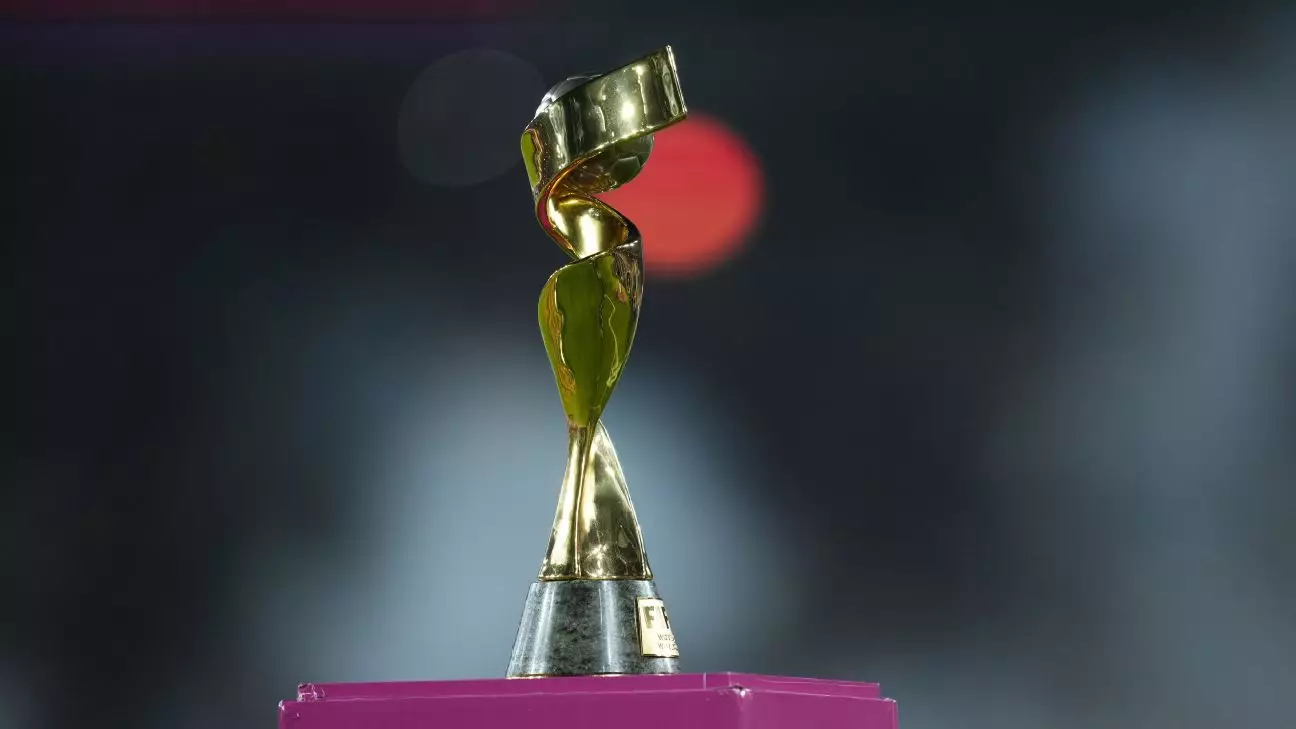In a monumental move that signals a new era for women’s football, the Mexican Football Federation (FMF) recently announced that Mexico will co-host the 2031 Women’s World Cup alongside the United States. This collaboration not only emphasizes the growing prominence of women’s sports but also presents an exceptional opportunity for both nations to elevate the game at a global level. The decision marks a pivotal moment not just for the host countries but for future generations of female athletes and fans who have been advocating for increased recognition and support for women’s sports.
The FMF’s announcement came swiftly after a Liga MX owners meeting, and while it was initially shared in a press release format, the implications of this decision are far-reaching. For the first time, the women’s edition of the World Cup is set to expand to 48 teams, mirroring the changes instituted in the men’s competition. This growth in participation promises to bring diverse representations to the field, showcasing talent from traditionally underrepresented regions and countries, thus promoting global equality within the sport.
The Evolution of Bidding Dynamics
Interestingly, this new hosting arrangement was not the original plan. Mexico had initially collaborated with the U.S. in a joint bid for the 2027 Women’s World Cup. However, that bid was ultimately withdrawn to concentrate on the piping hot prospect of 2031, which has the strong backing of FIFA President Gianni Infantino, who has shown enthusiasm for expanding women’s football. The shift from 2027 to 2031 reveals a strategic vision on the part of the Mexican and U.S. football federations, allowing them to hone in on a landmark event poised to capture global attention.
FIFA awarded the 2027 World Cup to Brazil, underscoring the competitive nature of hosting rights. However, the U.S. submitted its proposal for 2031 independently while hinting at the potential inclusion of other Confederation of North, Central America and Caribbean Association Football (Concacaf) nations. It reflects a keen understanding of regional synergy and a collective growth mindset for both nations and their neighbors.
Changing the Landscape of Women’s Sports
U.S. Soccer’s CEO, JT Batson, has been vocal about the profound opportunity presented in 2031 to not just enrich women’s football within the U.S. but to foster growth regionally and internationally. At a roundtable discussion earlier this year, Batson expressed the federation’s commitment to using the tournament as a pivotal moment to elevate women’s sport across various levels. The enthusiasm surrounding this collaboration showcases a shared dedication to propelling women’s football into a new realm of recognition, empowering athletes and enthusiasts alike.
This collaborative effort goes beyond logistics; it embodies a cultural shift, a movement towards inclusiveness and representation in a sport that has historically struggled against gender biases. As more nations commit to supporting women’s football, the collective voice advocating for equity and resources grows ever stronger, paving the way for change.
Looking Ahead: An Exciting Future
While both the Mexican and U.S. federations have yet to solidify the specifics of match allocation between them, the excitement surrounding this federation partnership is palpable. Discussions are still ongoing about the optimal way to utilize resources, with an eye towards ensuring that every participating nation benefits from this grand stage.
The U.S. is also gearing up for the 2026 Men’s World Cup, a separate event where it will co-host alongside Canada and Mexico. The synergies created from consecutive tournaments could serve as a catalyst for further investment and interest in women’s sports, thereby helping to establish foundational growth that transcends across both genders.
As we stand on the brink of this transformative chapter for women’s football, it is essential to applaud the steps being taken. The 2031 World Cup not only represents a tournament of champions; it symbolizes the breaking down of barriers, the amplification of women’s voices in sports, and the blossoming of a movement that seeks equity, representation, and opportunity. The shared goal is clear: to inspire an ever-burgeoning audience, to empower female athletes, and to celebrate the beautiful game in all its forms.


Leave a Reply